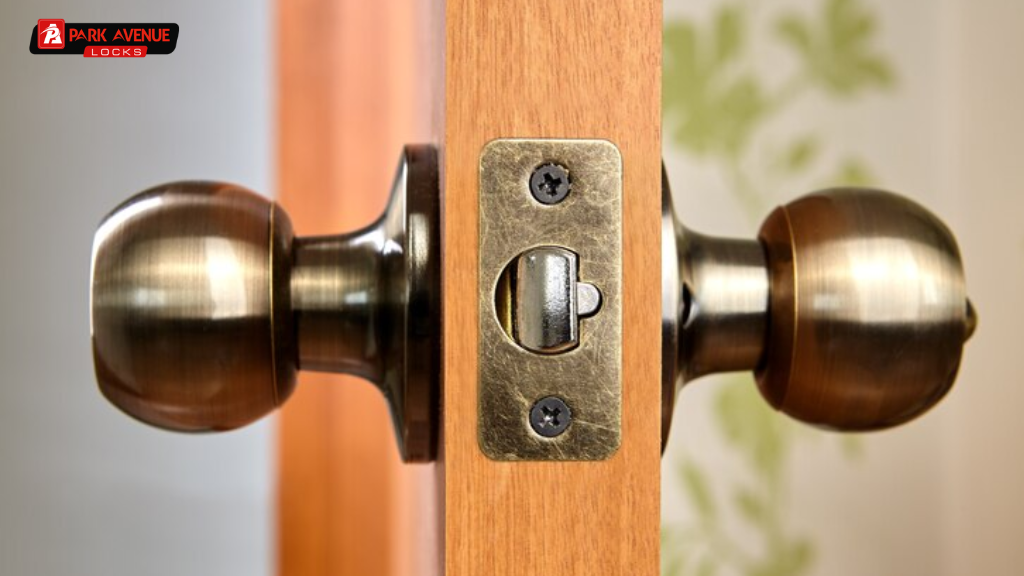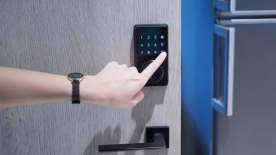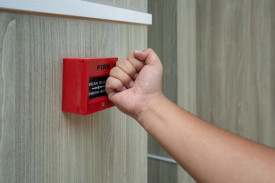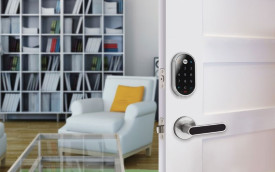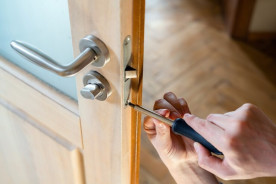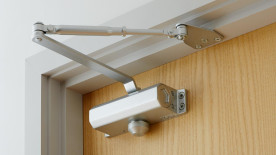A Mortise lock is strong, reliable, and utilized for various purposes because of its adaptability and security. The reliability, robustness, and security provided by these locks are well-known. Their versatility, long-lasting nature, and improved security features make them dependable for protecting various places and assets.
Common Applications of a Mortise Lock
1. Residential Settings
These locks are frequently employed to secure primary entrance doors in residential situations. Homeowners who value dependable security often opt for a mortise lockset due to their sturdy design, which offers greater protection against forced entry.
2. Entrance Doors
They are commonly used on external doors in commercial buildings due to the high-security level required in these environments. Their solid construction and resilience to wear and tear make them perfect for protecting entryways in offices and warehouses.
3. Educational Institutions
Educational institutions commonly use a mortise lock to increase the security of classrooms, offices, and other important facilities on campus. These locks are long-lasting and sturdy enough to endure the rigors of a school's hectic daily routine.
4. Hospitality Sector
Mortise is commonly used in the hospitality industry, especially for guest room doors. These locks are known for their durability and dependability, which gives guests peace of mind. Additionally, many of these locks in this setting have modern conveniences like key card access.
5. Healthcare Facilities
Mortise door locks are commonly utilized to safeguard sensitive areas in healthcare facilities, including patient rooms, laboratories, and pharmaceutical storage spaces, due to the importance of access control in these environments.
6. Government Buildings
These locks are an excellent choice for highly secure government buildings. They are commonly found on government building entrance doors, offices, and restricted areas to safeguard valuable resources and confidential information.
7. Retail Establishments
A Mortise keyless entry door lock safeguards entryways, exits, and storage spaces. They are an excellent option for retail store security because of their durability and resistance to forceful entrance attempts.
8. Museum Buildings
Strong security measures are necessary to safeguard priceless artifacts and historical documents in museums and other historical buildings. These locks are ideal for use in archives, museums, and other historical buildings due to the great degree of security they offer.
9. Society Apartments
The main entrance and individual unit doors of multifamily residential buildings, such as apartment complexes, are secured using these locks. These locks provide additional protection for residents because of their sturdy construction.
10. Industrial Units
Security is paramount in industrial settings to safeguard important equipment and resources, so these locks are commonly installed on access doors and in vulnerable places. They can endure the rigors of industrial settings thanks to their resilience.
Selecting an Appropriate Mortise Lock
There is a wide variety of locks available. How, therefore, can one select an appropriate mortise lock? Here are a few recommendations by our experts. Consider these points while choosing the best lock for you.
When selecting a mortise lock, it is important to consider the door's dimensions, material, etc. It has come to light that certain narrow doors are incompatible with these locks due to the thickness requirement for their installation.
After that, consider whether the door is on the inside or outside of the building. It will determine if you need to install a lock just because your level of protection can change depending on where you get the installation done.
A double tongue mortise is one option if you need a more secure lock for your door. One option for an inside installation is a lock with a single deadbolt and a push button. After that, knowing how the lock you're considering works is important.
It will help you decide if a secondary lock is necessary for your door. Finding a trustworthy provider is, ultimately, the most critical step. A reliable smart lock vendor can guide you in making an informed purchase and be there for you when you need them.
Installing a Mortise Lock
- Locate the installation site by drawing a line around the door's perimeter where the lock box will be placed.
- Make sure to drill holes at the designated spots.
- Use a chisel to align the edges of the mortise in the lock case.
- Ensure the lock housing is completely embedded in the wood by removing surplus.
- Make sure the primary lock plate's angle is parallel to the slope.
- After removing the lock case, mark and drill the holes on the face of the door frame for the knob/shaft and key/cylinder.
- Put the lock case back together and put the screw back in.
- Make sure everything is secure and working properly by inspecting the components.
Last Thoughts
A mortise lock is among the most sought-after door lock options available. The dependability and longevity of mortice locks are well-known. Stainless steel, brass, and chrome are just a few materials used for making these locks.
They are a good choice for a safe setting due to their longevity and important control features. If you're worried about the security of your home or place of business, I hope this manual helps. Feel free to reach out to Park Avenue Locks with any inquiries.
FAQs
Q: How secure is the mortise lock?
These locks are well known for being more secure. It becomes increasingly difficult to pick a lock with additional internal levers. For example, a mortise with seven bars is more secure than one with five bars. Picking a lock with extra internal leverage will make you feel safer.
Q: Can a standard lock be used in place of the mortise lock?
Yes, you can use a standard lock in place of a mortise. A cylinder lock is an acceptable alternative to a mortise lockset. Simply remove the mortise and insert a cylinder lock into the resulting hole to replace it.

